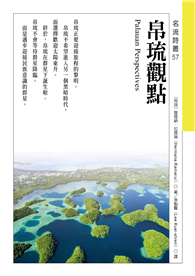The most prolific of Roman poets, Ovid was born in 43 BC and died in exile on the Black Sea in 17 AD, banished by the Emperor Augustus. As well as his famous Metamorphoses (the subject of another book in this series) he produced a large body of elegiac poetry, the Amores, Ars Amatoria, Remedia Amoris, Heroides, Fasti, Tristia and Ex Ponto, all of which are accessibly discussed here in Genevieve Liveley’s important re-evaluation of the poet’s politics, poetics and erotics. She examines the impact on Ovid of Augustus’ programmes for social and political reform, the role of genre, allusion and intertextuality in his writings, and the tensions underlying his representations of gender and sexuality. Finally she assesses responses to Ovid’s elegiac works by later love poets and writers, and reflects on the continued relevance and readability of his work for a twenty-first century audience.
| FindBook |
有 1 項符合
Ovid: Love Songs的圖書 |
 |
Ovid: Love Songs 作者:Liveley 出版社:Bloomsbury Publishing PLC 出版日期:2005-10-28 語言:英文 規格:平裝 / 141頁 / 21.6 x 13.5 x 1.3 cm / 普通級 |
| 圖書館借閱 |
| 國家圖書館 | 全國圖書書目資訊網 | 國立公共資訊圖書館 | 電子書服務平台 | MetaCat 跨館整合查詢 |
| 臺北市立圖書館 | 新北市立圖書館 | 基隆市公共圖書館 | 桃園市立圖書館 | 新竹縣公共圖書館 |
| 苗栗縣立圖書館 | 臺中市立圖書館 | 彰化縣公共圖書館 | 南投縣文化局 | 雲林縣公共圖書館 |
| 嘉義縣圖書館 | 臺南市立圖書館 | 高雄市立圖書館 | 屏東縣公共圖書館 | 宜蘭縣公共圖書館 |
| 花蓮縣文化局 | 臺東縣文化處 |
|
|
圖書介紹 - 資料來源:博客來 評分:
圖書名稱:Ovid: Love Songs
|











